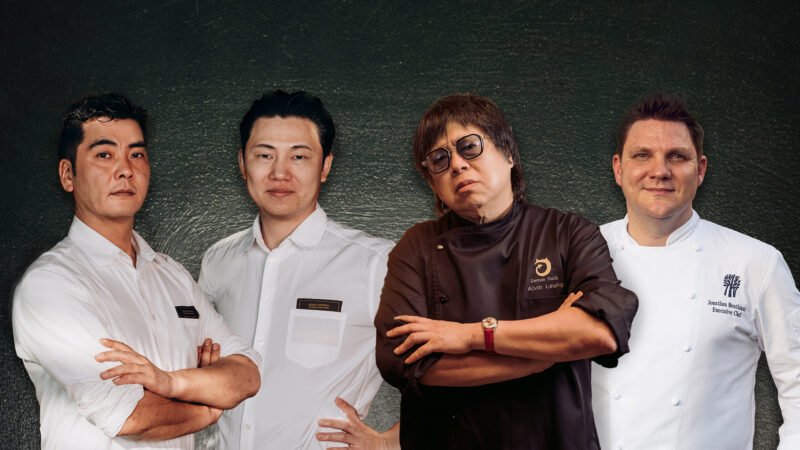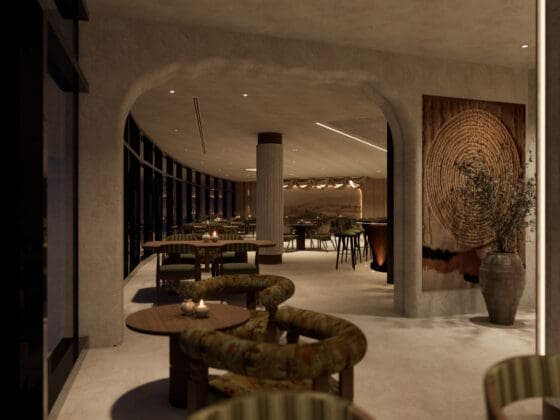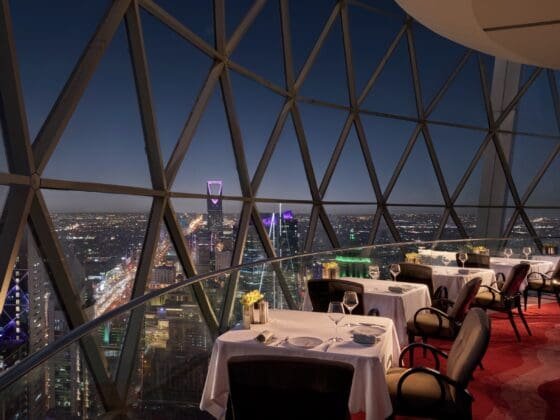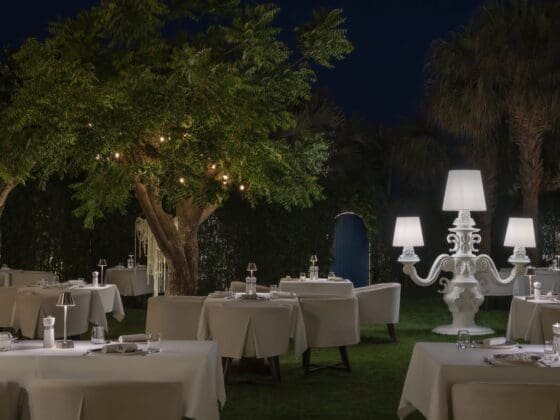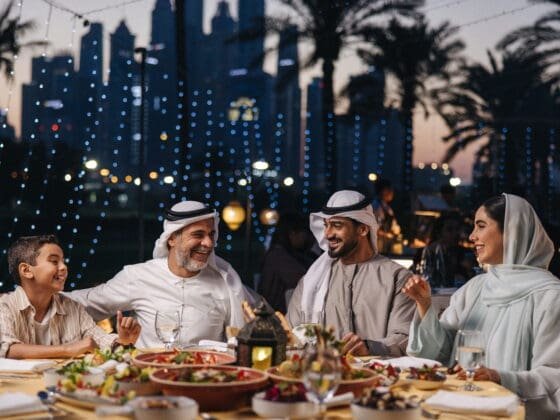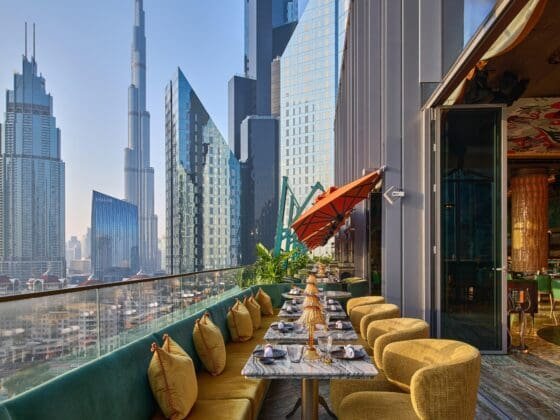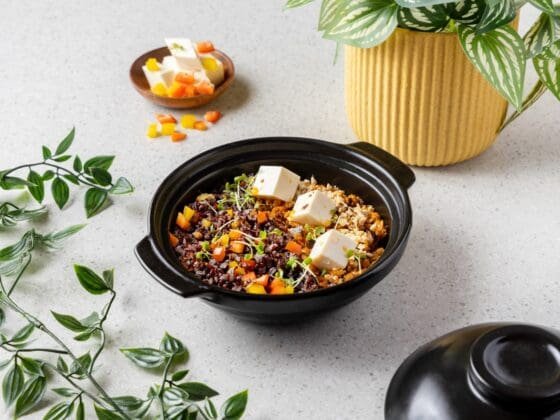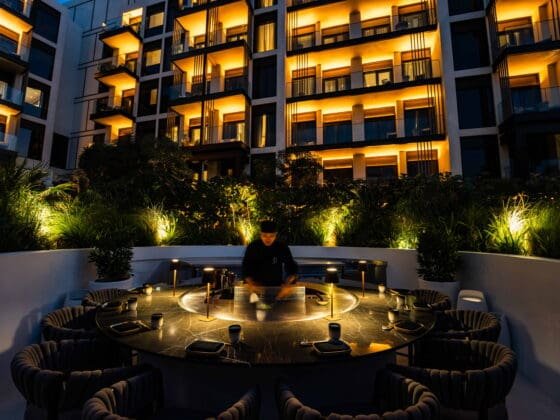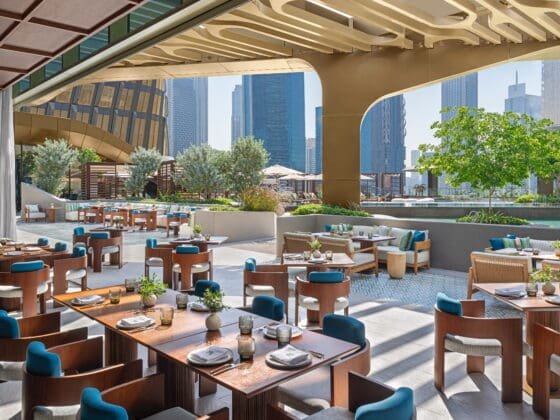There is something quietly transformative about a table that draws upon more than one language, one tradition, or even one philosophy. This May, Banyan Tree Dubai redefines the act of dining with The Culinary Masters—an eight-hands dinner spanning two evenings and three continents of culinary thought, bound not by geography but by a shared reverence for craft.
Set for the 24th and 25th of May, this rare gastronomic duet unfolds over two distinctive Dubai destinations—Demon Duck and TakaHisa—each known for its own culinary pulse. Yet, it is not the venues alone, but the visionaries behind them that give this experience its gravitas. Four chefs—Alvin Leung, Hisao Ueda, Taka, and Jonathan Bouthiaux—converge not to outshine one another but to co-compose a meal that is far more narrative than novelty.
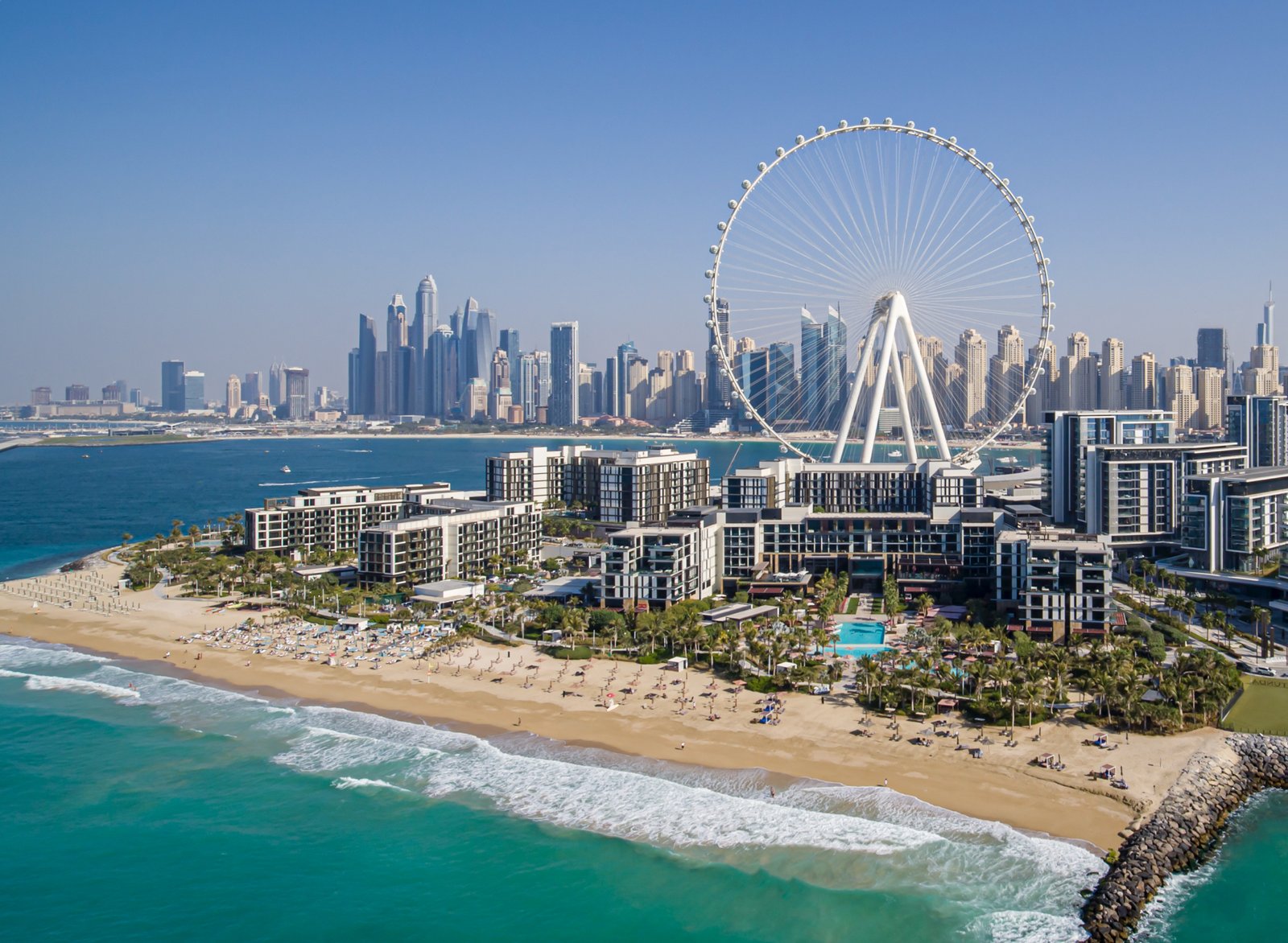
Saturday begins at Demon Duck, the creative stronghold of Chef Alvin Leung, whose culinary reputation is anything but modest. Known in the global food world as the “Demon Chef,” Leung approaches his plates like a provocateur. Here, Pan-Asian cuisine isn’t just reinterpreted—it’s reimagined, contorted, reassembled, and often reborn. His signature Slow-Roasted Demon Duck is less a dish and more a ritual, the kind of course that lingers long after the wine has been cleared. And yet, even within this theatricality, Leung’s dishes are grounded in method—an unspoken discipline beneath the flair.
The narrative shifts delicately on Sunday, as the second act unfolds at TakaHisa—Dubai’s temple to traditional Japanese cuisine and a fixture of the Michelin Guide’s refined landscape. Chefs Taka and Hisa, each steeped in decades of Kaiseki discipline, bring a rarified calm to the experience. Their dishes speak in a whisper: restrained, precise, deeply felt. Sushi arrives not as spectacle, but as quiet reverence. Wagyu is not merely served—it is honoured. In their hands, time slows, and with it, so does the palate, rediscovering simplicity as a form of elegance.
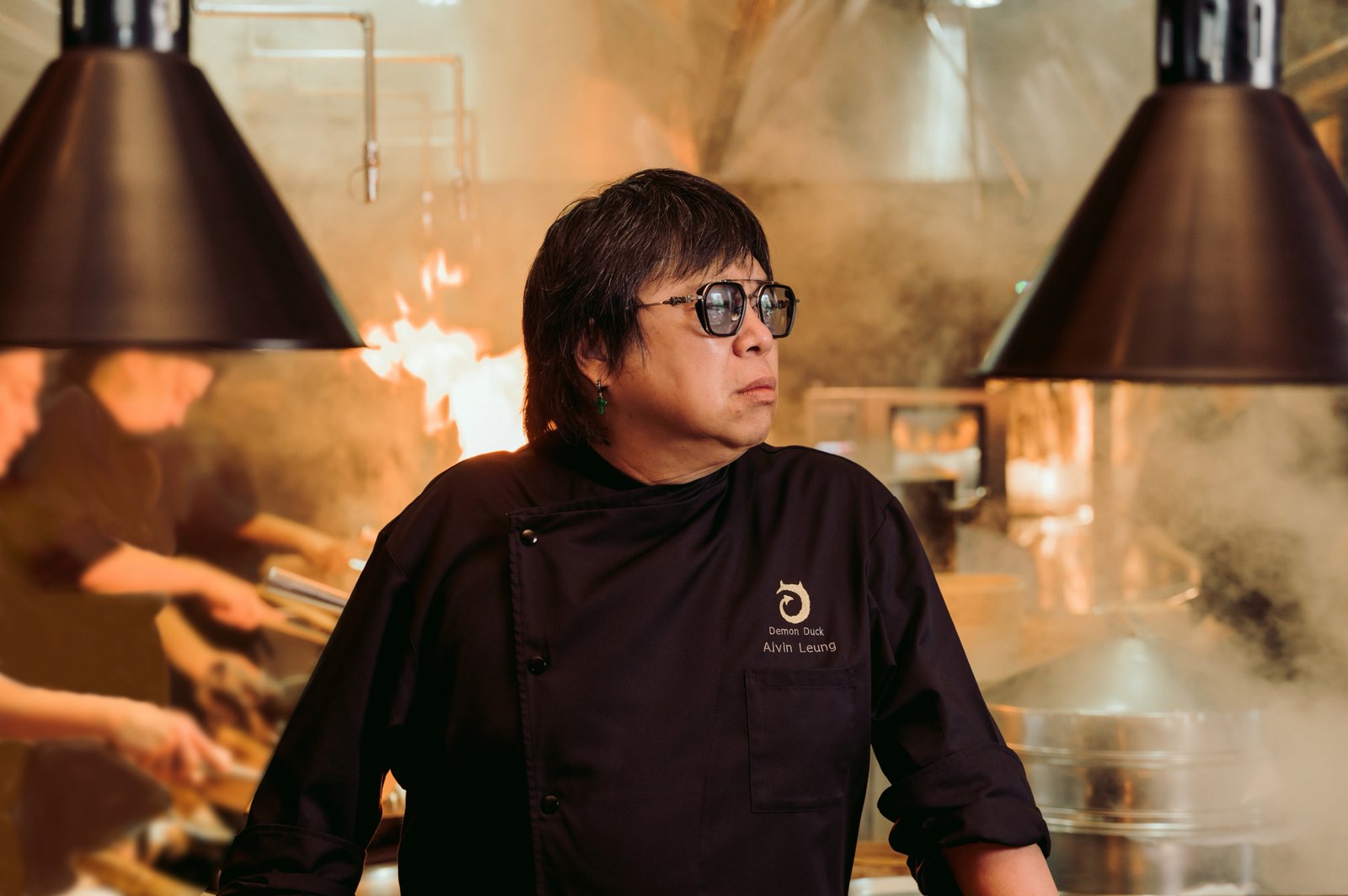
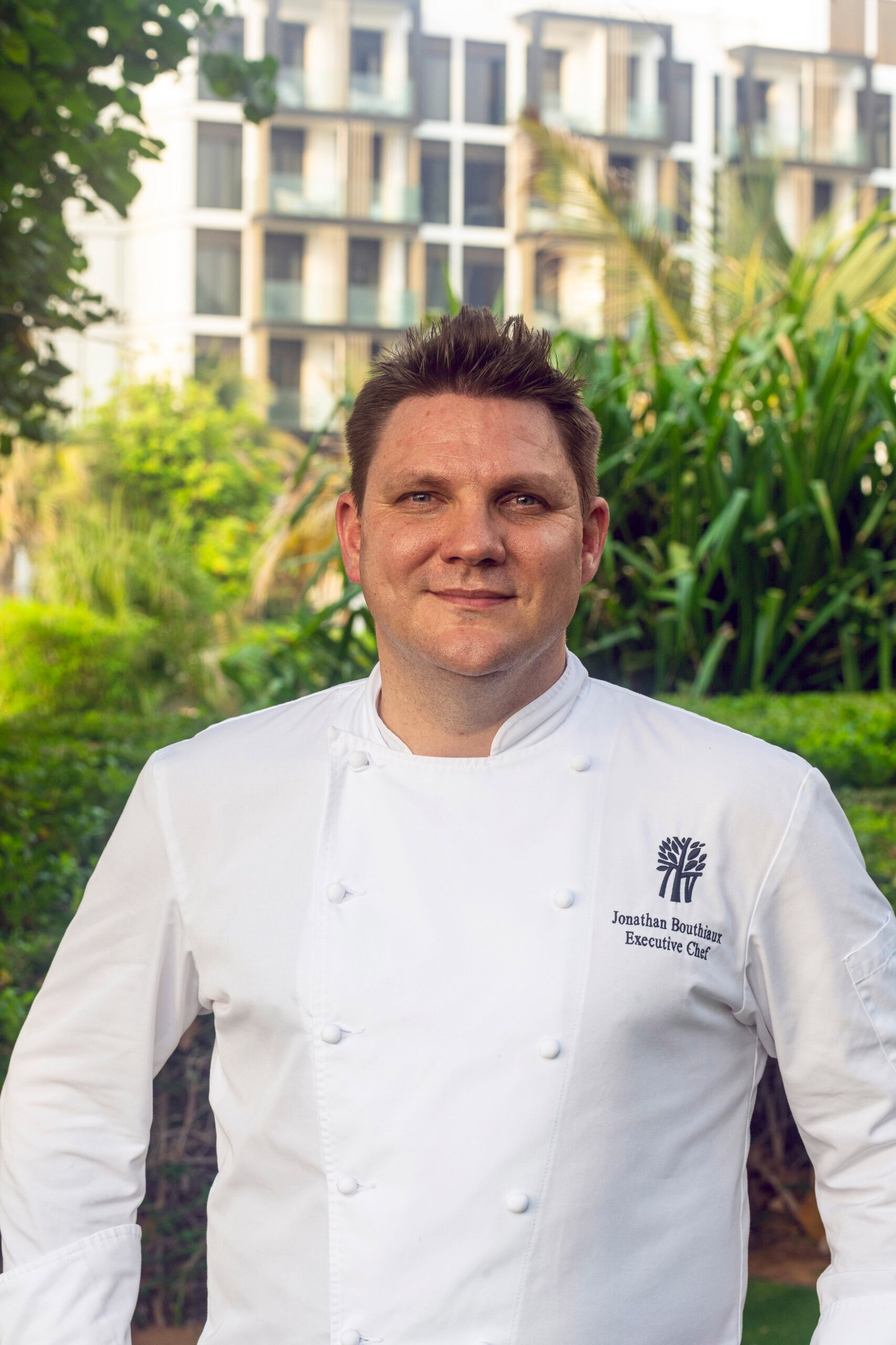
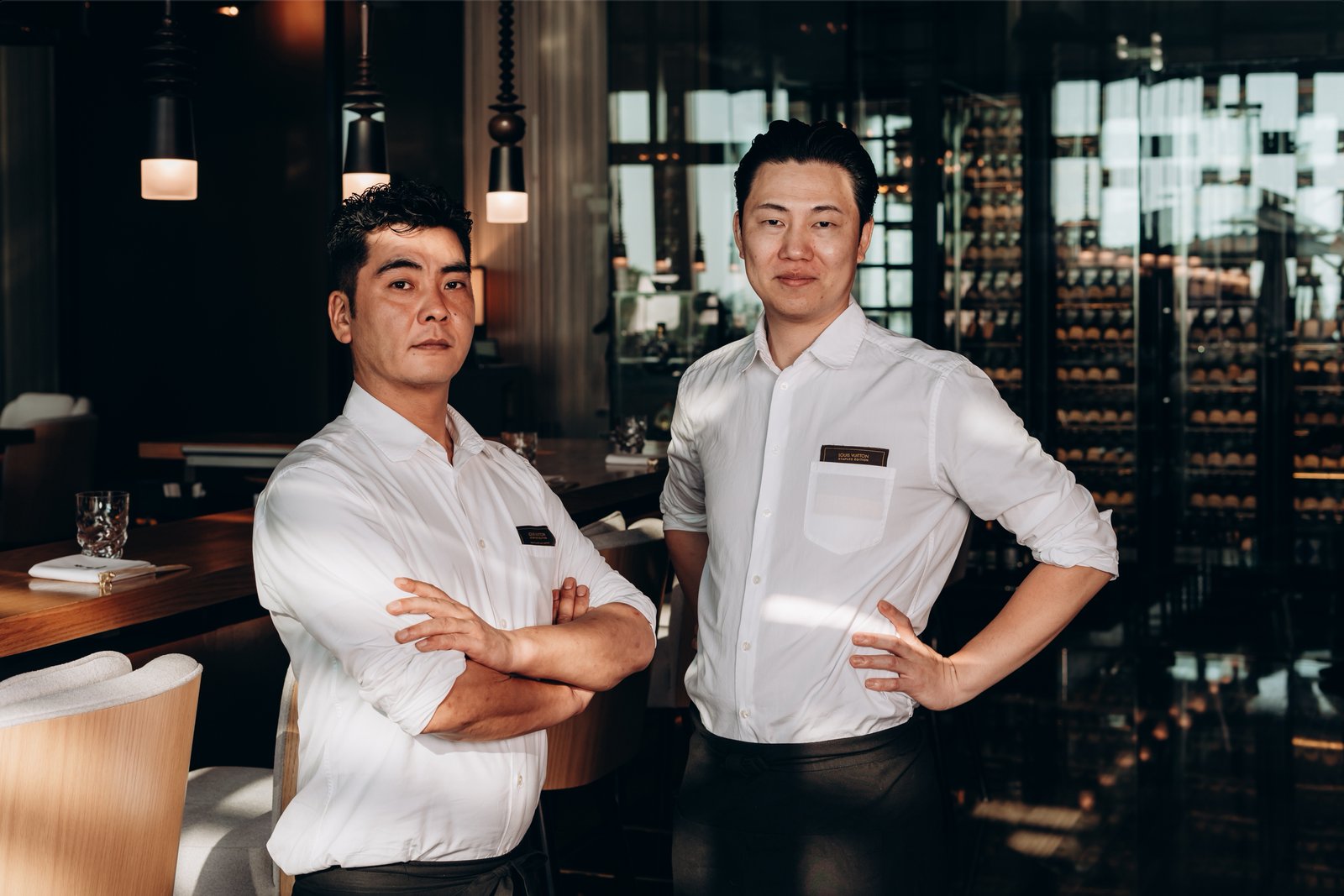
Threading the two evenings together is Chef Jonathan Bouthiaux, Executive Chef at Banyan Tree Dubai. Originally from Brittany, his presence is not intended to dominate but to connect—his culinary philosophy shaped by Michelin kitchens, French terroir, and a global perspective gained across continents. His role is the one you don’t notice at first but feel throughout: the quiet echo of cohesion across the eight-course menu, the nuance that binds duck to daikon, foie gras to uni.
The experience, though split across venues, is whole in intention. It is not a tasting. It is a telling. There is a humility here in the way each chef approaches collaboration—not as compromise, but as convergence. To dine across both evenings is to witness an evolving dialogue, where each plate carries the imprint of identity yet belongs fully to a larger conversation. It is, as Chef Bouthiaux says, “more than a meal — it’s a narrative shaped by four chefs, each bringing their soul, heritage, and creativity to the plate.”
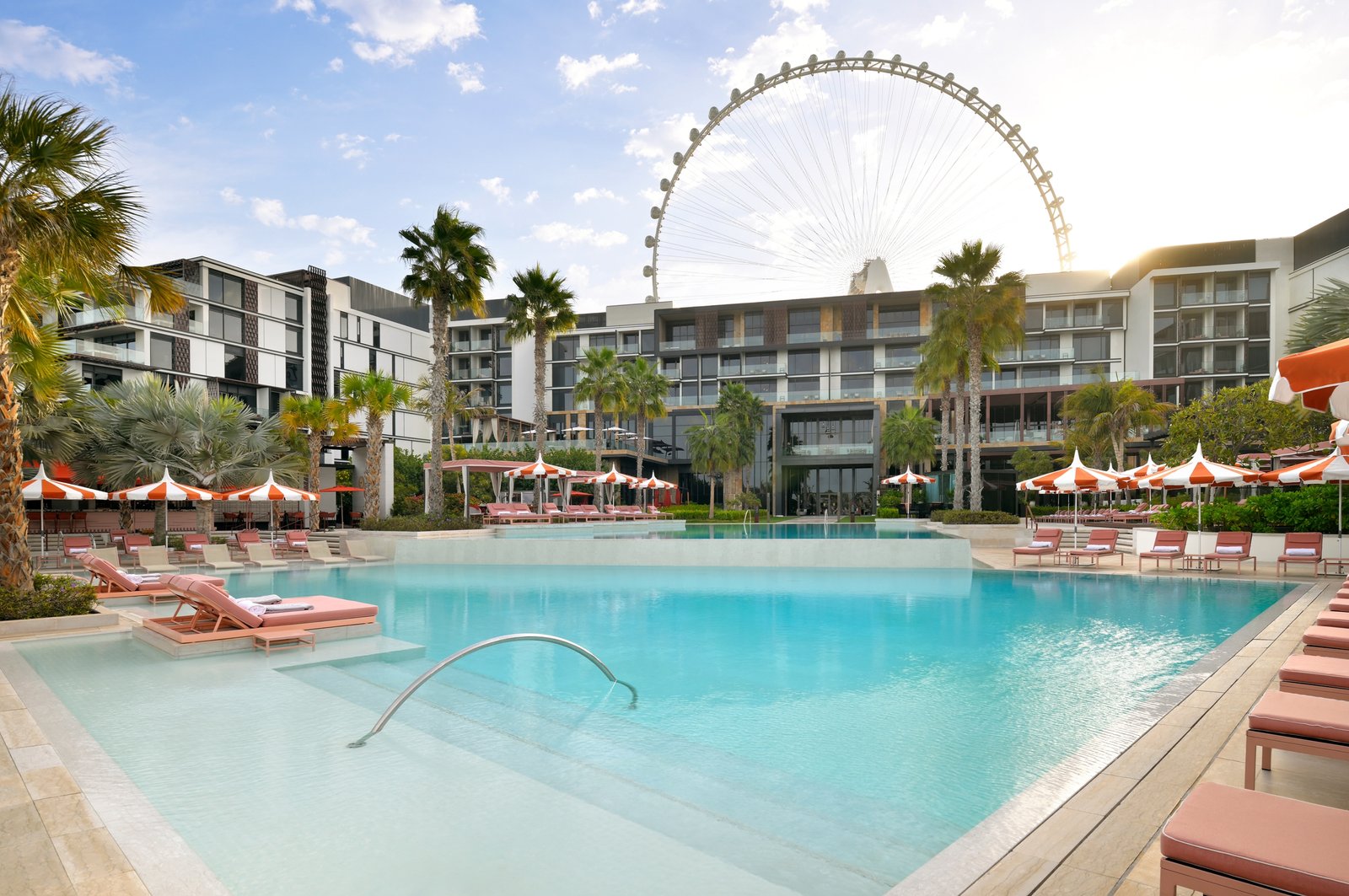
In a city already rich in culinary ambition, The Culinary Masters dinner distinguishes itself by resisting performance in favour of presence. The storytelling is quiet, the technique confident, and the experience—undeniably memorable. This is Dubai dining at its most self-assured: intimate, international, and entirely in its own class.

